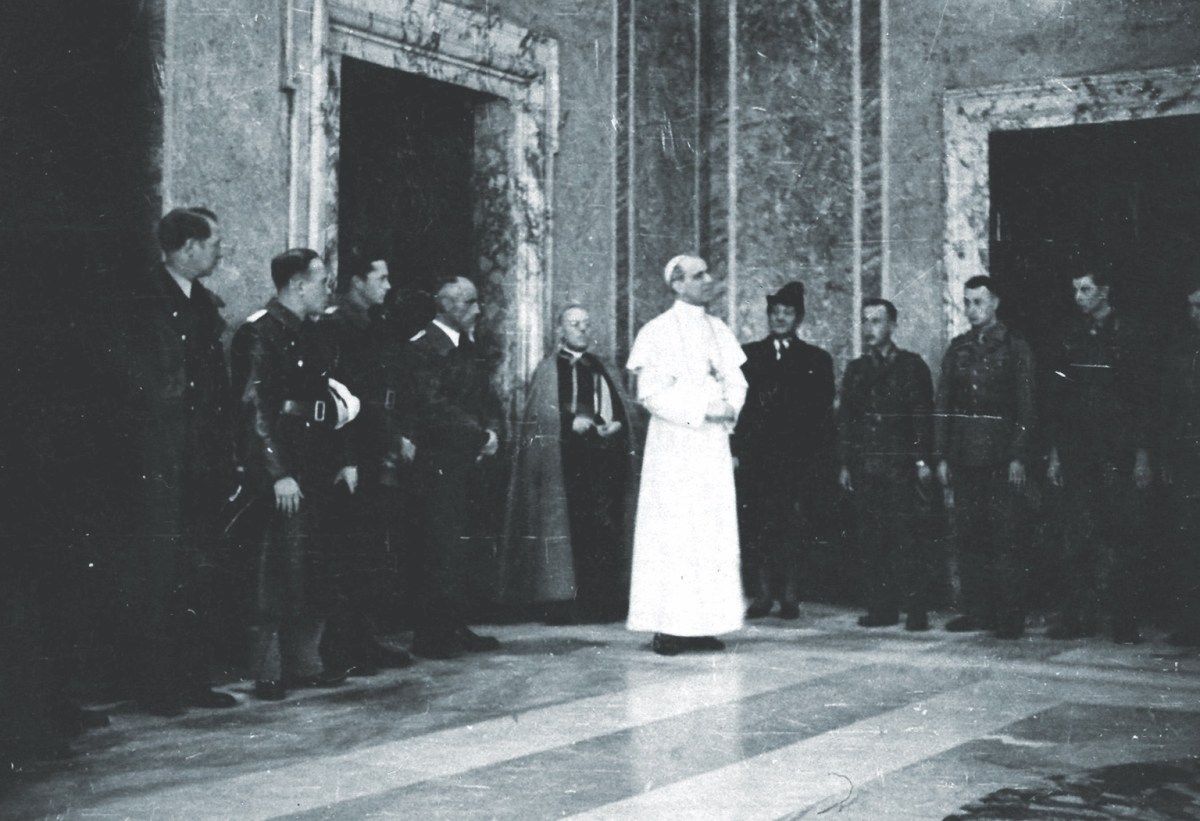the pope at war
The Secret History of Pius XII, Mussolini and Hitler
By David I. Kertzer. 672 pp. Random House, 2022. $37.50.
Early in his reign, Pope Pius XI cooperated with Italy’s Fascist regime. But he grew increasingly alarmed by Benito Mussolini’s embrace of Adolf Hitler, “a man he despised as an enemy of the Church and a proponent of a pagan ideology,” writes Brown University professor and biographer David I. Kertzer in his latest book, “The Pope at War.” When Pius XI’s secretary of state, Eugenio Pacelli, succeeded him, the new pope paid tribute to his predecessor by taking the name Pius XII. But, as Kertzer demonstrates, the two men could not have been more different.
Historians have long debated Pius XII’s record during World War II and the Holocaust, but the relevant documents in the Vatican archives were not made available to researchers until 2020. Drawing upon these new materials and a broad array of other sources, Kertzer, the Pulitzer Prize-winning author of 2014’s “The Pope and Mussolini: The Secret History of Pius XI and the Rise of Fascism in Europe,” has produced the most authoritative study yet — a highly damning one.
While the pope’s detractors castigate him for his silence during the Holocaust, his defenders point to his 1942 Christmas Eve radio broadcast as evidence to the contrary. Buried on page 24 of his script, he did mention “the hundreds of thousands of people who, through no fault of their own and solely because of their nation or their race, have been condemned to death or progressive extinction,” notes Kertzer. But Pius XII never mentioned Jews or Nazis by name or apportioned blame, although the Vatican received numerous reports about the genocide in progress.
Pius XII also remained silent about the murder and repression of Catholics, including clergy, in Poland, France and other occupied countries. As Vladimir d’Ormesson, the French ambassador to the Holy See, put it, “the Holy Father is a little too easily resigned to playing only a passive role in the drama that is ravaging Christianity.” Similarly, he ignored the bombings of London and other British cities, which accounted for Winston Churchill’s brusque dismissal of the pope’s appeals to the Allies to spare Rome later in the war — the only time he made a public protest.
What accounted for this passivity? Kertzer argues the pope was intent on protecting the institutional church above all, and he was clearly intimidated by Hitler and Mussolini. He encouraged efforts to save Jews who had been baptized, but he could hardly claim credit for the courageous Catholics who saved Jews with no ties to the Church. “As a moral leader, Pius XII must be judged a failure,” Kertzer concludes. His book amounts to a searing indictment.
— Andrew Nagorski is the author, most recently, of Saving Freud: The Rescuers Who Brought Him to Freedom






